ABOUT
Asian cities and architecture, which consist of various ethnicities, religions, culture, and history, as well as simultaneous homogeneity and heterogeneity, are undergoing a series of transformations in terms of urbanization, governance, environmental issues, and socioeconomic development.
Architecture Asia, as the official journal of the Architects Regional Council Asia, aims to provide a forum not only for presenting Asian phenomena and their characteristics to the world but also for understanding diversity and multiculturalism within Asia from a global perspective.
Focusing on the architectural humanities, this quarterly, double-blind peer-reviewed journal strongly encourages submissions from all fields related to architecture and the city, such as architectural design, theory, technology, sustainability, and pedagogy. It comprises both open issues and special issues with themes relevant but not limited to Asia. Innovative and interdisciplinary research articles and introductions to contemporary architectural practices are welcomed.

EDITORIAL TEAM
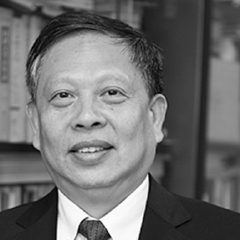
WU Jiang is a full professor at Tongji University College of Architecture and Urban Planning, China. He was the former Deputy Director of Shanghai Urban Planning Administration Bureau, the former Executive Vice President of Tongji University and was elected the member of L’Académie d’Architecture de France in 2015. Since 2019, he has been serving as the Vice President of Architects Regional Council (ARCASIA). He is the Board Chairman of the Global University Partnership on Environment and Sustainability (GUPES), as well as the member of the UIA Education Commission (EDUCOM). He is the Vice President of Urban Planning Society of China (UPSC), serving as a standing council member of the Architectural Society of China (ASC), and the Director of Institute of Architectural Education, Architectural Society of China (IAE-ASC), as well as the Chairman of Asian City Forum.
He has been invited to world well-known universities and research institutes to deliver keynote speeches, including Harvard, Yale and Princeton, as well as the departments or bureaus of urban planning and management in New York, Los Angeles and Paris. He has given keynote reports at major international conferences, e.g., UN HABITAT III and ACSP. He has been invited to be the juror of final review of Dubai Awards hosted by UN HABITAT. Professor WU is the founder of several joint international design studios with top world institutes such as Princeton, HKU, ETH, Yale, UIUC and TU Berlin. He was the curator of 2002 Shanghai Biennale Urban Construction, as well as the founder and chief curator of the 1st Shanghai Urban Space Art Season (SUSAS 2015). The latter is regarded one of the most important cross-border big events of city, architecture and art in China.
He is a devoted architecture scholar. His research fields cover architectural history, urban planning, as well as urban regeneration and urban governance. He published a dozen of important books including: Elaborated Planning of Historical Streets: A New Perspective on Organic Urban Regeneration in Shanghai, Asian Cities: Planning and Development, Shanghai Urbanism at the Medium Scale, A History of Shanghai Architecture: 1840 – 1949, The Chinese Modern Architectural History (5 vol.) , The History of Modern Architectural Education in China (1920 – 1980).
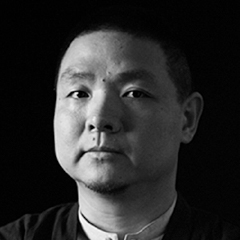
LI Xiangning is dean and full professor in history, theory and criticism at Tongji University College of Architecture and Urban Planning. He is a member of CICA (Comité International des Critiques d’Architecture), and Secretary General of China Architectural Society Architectural Criticism Committee. He is Editor in Chief of the international magazine Architecture China. He serves as advisory board member of Confluence Institute for Innovation and Creative Strategies in Architecture, and editorial board member of magazines including Plan and Le Visiteur (Journal of Société Française des Architectes).
He has been a jury member to many international awards and competitions including Spanish International Architectural Award, and Mies van der Rohe Award the European Union Prize for Contemporary Architecture. He taught and lectured in universities and institutes including Princeton University, TU Darmstadt, UCLA, USC, Chalmers University, IUAV, IAAC, Canadian Center for Architecture. He was a Visiting Professor in Architecture at Harvard GSD in 2016.
He is co-curator of 2011 Chendu Biennale, 2011 Shenzhen Biennale, academic director and curator of 2013 Shenzhen/Hong Kong Bi-city Biennale, curator of Shanghai Westbund 2013 Biennale, and curator for 2015 and 2017 Shanghai Urban Space Art Season. He serves as director for 2017 Busan Architectural Culture Festival (Korea) and recently curated the Chinese Pavilion at 2018 Venice Biennale.
His recent books include The Real and the Imagined: A Study of Value in Contemporary Urban Theory (2009), Updating China: Projects for a Sustainable Future (2010), Made in Shanghai (2014), Shanghai Regeneration (2017) and Towards a Critical Pragmatism: Contemporary Chinese Architecture (2018).
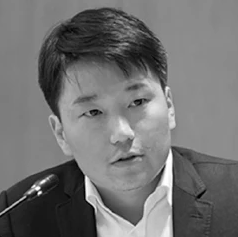
ZHOU Minghao is an associate professor in architecture, the Assistant Dean of the Institute of Elaborated Governance for Megacity, Tongji University, and the Deputy Director of International Office at the College of Architecture and Urban Planning, Tongji University. He obtained his doctorate in History and Theory of Architecture from Tongji University in 2012, and is the doctor candidate of La Sapienza University of Rome.
His research fields include urban governance and regeneration, history and theory of architecture. He is the co- author of the book A Study on the Big Events within Shanghai’s 40 years of Reform and Opening up (vol. 7): Urban Construction (2018), and also contributes chapters to the books The Influence of Western Architecture in China (2017) and The Interpretation and Inheritance of Traditional Chinese Architecture (Shanghai Volume) (2017). He has published over 20 papers in Chinese or international journals as Architectural Journal, The Architect, Time Architecture, Urban Design International, etc., the topics of which cover the contemporary architectural discourses in China and in the Western, the urbanization and regeneration of Shanghai urban space.
Due to his research and practice achievements, he has won 6 national / municipal level awards, including the 1st Prize of the National Excellent City Planning and Design Awards, the 1st Prize of the Shanghai Excellent City Planning and Design Awards, the 1st Prize of Shanghai Municipal Government Advisory Awards, etc.. the 2nd Prize of the National Ministry of Education’s Excellent Scientific and Technological Research Achievements Awards.
Since 2017, He has deeply and actively involved in various events of ARCASIA, responsible for organizing the OB- CC meeting (2018) and Zone-C Presidential Meeting (2019) which were held in Shanghai, and given his contributions by serving as the Assistant President of ARCASIA Zone C, and Deputy Secretary-General of ACA 19.
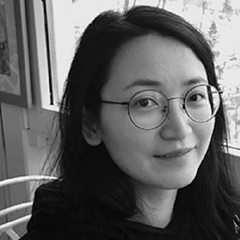
WANG Yanze has been a post-doctoral fellow in the College of Architecture and Urban Planning at Tongji University since 2020. She received her Ph.D. at School of Architecture, Southeast University, and studied as a joint Ph.D. researcher at Columbia University and University of Pennsylvania. She also had academic research and working experiences at Chinese University of Hong Kong and Brno University of Technology. Since 2019, she has been undertaking Architecture Asia and relevant ARCASIA affairs.
Her research concerns the evolution of architectural education from classic to contemporary, being particularly interested in transplantation of the Beaux-arts education in early 20th century China. Her articles, such as Beaux-arts Composition and Its Evolution in China’s Architectural Education (SCI, A&HCI,EI) and Pure Design: A Transitional Case of American Architectural Education in the early 20th Century (CSSCI), have been published internationally and domestically on the Journal of Asian Architecture and Building Engineering (JAABE), Architectural Journal, Architects, Time and Architecture, etc. She has participated in a series of publications, for instance A Documentation: Development of the Disciplines at the School of Architecture of SEU, The Words: Interviews with the Teachers at the School of Architecture of SEU, and The Tale of Ten Extraordinary US Cities: from Tradition to Delirious. She was the curator assistant of exhibitions, including The Rise of Modernity: the First Generation of Chinese Architects from the University of Pennsylvania at Power Station of Shanghai (PSA).
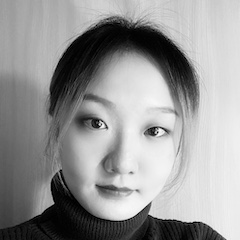
ZHENG Xin is a former editor in Architectural Practice Magazine. In 2018, She obtained her master degree in Architecture and Historic Urban Environments at The Bartlett School of Architecture, UCL. Her major research interest lies in the modern architectural history of China, and keeps focusing on the condition of colonial built heritage and their urban, cultural and social influence on contemporary China.
After coming back to China, she worked as an editor in Architectural Practice Magazine, leading in the completion of issues “TOD” “Waterfront Space” “Mega-Culture” and “Reinventing Future Campus” from 2019 to 2020. She was also one of the foundation team members and contributors of Urbanogram: Journal of the Built Environment, an independent journal initiated by graduates of the Bartlett School of Architecture.
EDITORIAL BOARD
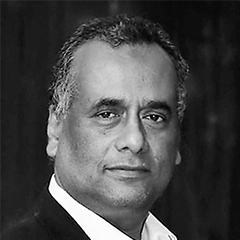
Dr. Abu Sayeed M Ahmed is the Dean, of the Faculty of Environmental Science and Design, at the University of Asia Pacific, Dhaka. He graduated from BUET, Dhaka, and obtained a Master’s and Doctorate in Architecture from the University of Karlsruhe, Germany.
He is currently engaged with several restoration projects in Bangladesh and is the author of four books related to Historical monuments and Conservation. His conservation-related works include his role as National Consultant-Architecture by UNESCO for capacity building and training for World Heritage Site management in Bangladesh. He is currently engaged with several restoration projects in Bangladesh. He received the “Award of Merit” in the 2021 UNESCO Asia-Pacific Awards for Cultural Heritage Conservation.
He served as the President of the Institute of Architects Bangladesh for two consecutive terms and the Current President of the Architects Regional Council of Asia (ARCASIA).
.jpg)
Vice President Zone A, ARCASIA
.jpg)
Vice President Zone B, ARCASIA
.jpg)
Ar. Chun Gyu Shin, KIRA/AIA is Vice president of Zone C, ARCASIA, a principal architect and founder of CGS Architecture and Association. He was City Architect of Cheongju City and an adjunct professor at Yonsei University for 20 years. He received Bachelor degree at Yonsei University, Master of Architecture and Master of Urban Planning at Ohio State University, USA. He was also a member of Architectural Policy Committee in Seoul Metropolitan Government, an architectural advisor of Korea International Cooperation Agency (KOICA) and Master Planner of National Museum Complex of Sejong Administrative City. His major works are “Aimsak Factory” (received Presidential Award of Korea Architecture Award, 2008 and Gold Medal of ARCASIA, 2010), “Chungho Building Remodeling ”(received Seoul Architecture Award, 2008), “Creative Village at ChungKang College of Cultural Industries(received Korea Architecture Award, 2010)” and etc.

Rita SOH joined RDC Architects Pte Ltd in 1989 as an Architect and rose through the ranks before assuming the mantle of Managing Director in 2016.
Over the years, she has played a key role in RDC’s digitalisation journey, making it one of the pioneers in the adoption of Information Technology for design & practice. In addition, she had also led RDC to be the first design practice locally to achieve ISO 9000 certification in 1992. She has been involved in design and project management of healthcare, hospitality, residential, commercial, industrial, institutional and infra- structure projects, both locally and overseas, where many of these projects had won a variety of awards.
She is currently a member of the Appeals Board (Land Acquisition), Board Member of Sentosa Development Corporation & Housing Development Board. She is also member of Mandai Development Committee and Chairman of Building & Construction Authority (BCA) Design & Engineering Safety Award Assessment Committee. She was President, ARCASIA (Architects Regional Council Asia), ans is Chairman of SUTD Architecture & Sustainable Design Pillar Advisory Board as well as member of the NUS Advisory Committee, School of Design & Environment. She was formerly a Nominated Member of Parliament.
She holds a Bachelor of Arts (Architectural Studies) degree and a Bachelor of Architecture (Honours) degree from the National University of Singapore as well as a Master of Science degree in Sustainable Building Design from the University of Nottingham.
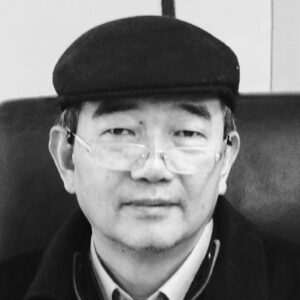
KONG Yuhang is a nationally renowned Professor and Dean of the School of Architecture at Tianjin University, China. With a pioneered influence on Chinese architectural education, Prof. Kong holds a series of academic positions including the Chairman of the organizing committee of UIA-HYP Cup International Student Architectural Design Competition, Member of the International Competition Committee at Union of International Associations (UIA-ICC), Vice Chairman of Institute of Architectural Education and Accreditation in Architectural Society of China (IAEA, ASC), etc. Meanwhile, he serves as the Co-chief Editor of Architecture & DETAIL journal, and Editorial Board Member of several Chinese architecture journals including Architect, New Architecture, World Architecture, Chinese Architectural Education, etc.
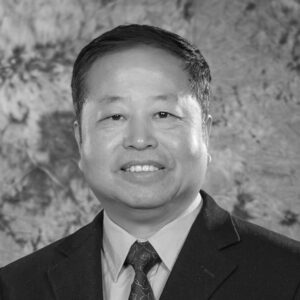
Cao Jiaming graduates from CAUP Tongji University. He is now the president of the Architectural Society of Shanghai China, the vice president of the Architectural Society of China, the chairman of the Yangtze River Delta Architectural Association and the editor-in-chief of the Architecture Practice. As the national first-grade registered architect, the APEC architect and a professor level senior engineer, he is awarded as one of the Top 100 Architects of China issued by the Architectural Society of China and the Best Director of Design Institutes of China issued by the Ministry of Housing and Urban-Rural Development of the People’s Republic of China.
In terms of the project design and management, he leads the design of such major projects as the BM Plaza, the BM Tower, the ECO Home of Shanghai Pavilion of the World Expo and the Hongqiao Transportation Hub. Besides, he supervises the process of some significant projects including Shanghai International Convention Center, Xiamen Gaoqi International Airport, Pudong Bank of Communications Tower and Shanghai Grand Theatre.
In addition, he publishes the Planning and Architectural Design for Hongqiao Comprehensive Transportation Hub, the Green Residence in the City and the Oriental Pearl.

WU Jiang is a full professor at Tongji University College of Architecture and Urban Planning, China. He was the former Deputy Director of Shanghai Urban Planning Administration Bureau, the former Executive Vice President of Tongji University and was elected the member of L’Académie d’Architecture de France in 2015. Since 2019, he has been serving as the Vice President of Architects Regional Council (ARCASIA). He is the Board Chairman of the Global University Partnership on Environment and Sustainability (GUPES), as well as the member of the UIA Education Commission (EDUCOM). He is the Vice President of Urban Planning Society of China (UPSC), serving as a standing council member of the Architectural Society of China (ASC), and the Director of Institute of Architectural Education, Architectural Society of China (IAE-ASC), as well as the Chairman of Asian City Forum.
He has been invited to world well-known universities and research institutes to deliver keynote speeches, including Harvard, Yale and Princeton, as well as the departments or bureaus of urban planning and management in New York, Los Angeles and Paris. He has given keynote reports at major international conferences, e.g., UN HABITAT III and ACSP. He has been invited to be the juror of final review of Dubai Awards hosted by UN HABITAT. Professor WU is the founder of several joint international design studios with top world institutes such as Princeton, HKU, ETH, Yale, UIUC and TU Berlin. He was the curator of 2002 Shanghai Biennale Urban Construction, as well as the founder and chief curator of the 1st Shanghai Urban Space Art Season (SUSAS 2015). The latter is regarded one of the most important cross-border big events of city, architecture and art in China.
He is a devoted architecture scholar. His research fields cover architectural history, urban planning, as well as urban regeneration and urban governance. He published a dozen of important books including: Elaborated Planning of Historical Streets: A New Perspective on Organic Urban Regeneration in Shanghai, Asian Cities: Planning and Development, Shanghai Urbanism at the Medium Scale, A History of Shanghai Architecture: 1840 – 1949, The Chinese Modern Architectural History (5 vol.) , The History of Modern Architectural Education in China (1920 – 1980).

LI Xiangning is dean and full professor in history, theory and criticism at Tongji University College of Architecture and Urban Planning. He is a member of CICA (Comité International des Critiques d’Architecture), and Secretary General of China Architectural Society Architectural Criticism Committee. He is Editor in Chief of the international magazine Architecture China. He serves as advisory board member of Confluence Institute for Innovation and Creative Strategies in Architecture, and editorial board member of magazines including Plan and Le Visiteur (Journal of Société Française des Architectes).
He has been a jury member to many international awards and competitions including Spanish International Architectural Award, and Mies van der Rohe Award the European Union Prize for Contemporary Architecture. He taught and lectured in universities and institutes including Princeton University, TU Darmstadt, UCLA, USC, Chalmers University, IUAV, IAAC, Canadian Center for Architecture. He was a Visiting Professor in Architecture at Harvard GSD in 2016.
He is co-curator of 2011 Chendu Biennale, 2011 Shenzhen Biennale, academic director and curator of 2013 Shenzhen/Hong Kong Bi-city Biennale, curator of Shanghai Westbund 2013 Biennale, and curator for 2015 and 2017 Shanghai Urban Space Art Season. He serves as director for 2017 Busan Architectural Culture Festival (Korea) and recently curated the Chinese Pavilion at 2018 Venice Biennale.
His recent books include The Real and the Imagined: A Study of Value in Contemporary Urban Theory (2009), Updating China: Projects for a Sustainable Future (2010), Made in Shanghai (2014), Shanghai Regeneration (2017) and Towards a Critical Pragmatism: Contemporary Chinese Architecture (2018).
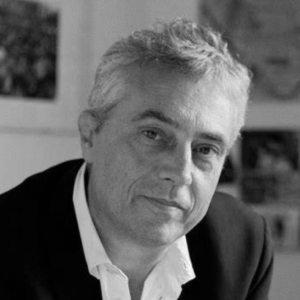
Stefano Boeri is a world known architect, curator, critic and curator. From June 2011 to March 2013, he has been appointed as Councilor for Culture, Design and Fashion for the Muncipality of Milan and the chief member of Urban Planning Consult Team for Milan 2015 Expo masterplan as well as the President of Triennale di Milano. He is the full Professor of Urban Planning at Politeconico in Milan and has taught as the visiting professor at Harvard University’ s Graduate School of Design(GSD), Strelka Institute in Moscow and Berlage Institute in Netherland. Ecole Politecnique Federale de Lausane etc.
From 2004 to 2007, he worked as the chief editor of Domus International magazine. From 2007 to 2011, he was the editor in chief of the international magazine Abitare. He is the founder of Multiplicity (www.multiplicity.it) International research network which is dedicated to the study of contemporary urban transformation. He is also the author of publications including his latest work A Vertical Forest which has been published worldwide. The focus on the relationship between city and nature leads to the creation of Vertical Forest. Realized in Milan in 2014, the Vertical Forest receives many international awards. Introducing the concept of biodiversity in architecture, Stefano Boeri works on the development of the Milanese model and on Urban forestry. He presented his project of Forest City in the United Nations Climate Change Conference (COP21), becoming one of the main actors in the debate on climate change in the field of international architecture.
ADVISORY BOARD MEMBERS
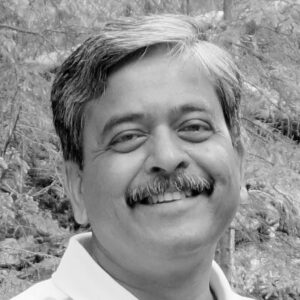
Ashutosh Kumar AGARWAL has a Master in Architecture from USA (1989) and Bachelor of Architecture (1986) from IIT Roorkee (formerly known as University of Roorkee), is a senior architect practicing in New Delhi, India. He has large scale green field educational campuses, urban design of mixed used developments, housing etc. to his credit.
He has held various positions in Indian Institute of Architects, including editing Vastu Samvad, an official news letter of the Northern Chapter of the Indian Institute of Architects. He has also served as honorary Secretary of the ACAE. He is also a member of Fellowship of the ARCASIA.
He has been teaching in various colleges of Architecture in National Capital Region (NCR) of Delhi and has keen interest in architectural journalism and architecture critique. He has also taught architectural journalism in Amity University, Noida, and has keen academic interest.
He has been regularly part of various juries and panels and has also been part of National War Memorial (India) in the capacity of associate professional advisor.
He presently holds various positions in the Council of Architecture (India) and the Indian Institute of Architects.

BOON Che Wee is a Professional Architect based in Kuala Lumpur, Malaysia.
He has served on the Board of Architects Malaysia and Board of Town Planners Malaysia, and as President of Malaysian Institute of Architects (PAM).
During his PAM presidency, he has curated the inaugural Malaysia Pavilion at the Venice Biennale, and was the Founding Director of Kuala Lumpur Architecture Festival.
He was the Chair of the Green Building Index Accreditation Panel, and continues to serve on the Panel. He is an advocate of green design and sustainable development as the key differentiators of Asia’s competitiveness, and has spoken widely on these subjects.
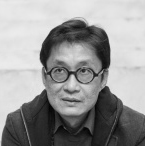
CHANG Ping Hung is Fellow of HKIA; Registered Architect in Hong Kong and China; Associate Professor, Department of Architecture, HKU; Chairman of 1a Space; Director of the Urban Place Research Unit; Visiting Scholar in Harvard-Yenching Institute, Harvard University; Advisory Committee Member on Revitalization of Historic Buildings. He is both an architectural practitioner and theorist on urban design, cultural conservation and community participation. His award-winning designs range from urban washroom to university academic building. Also, he is a social activist to promote a civil consciousness on urban environment, community conservation and sustainable planning, including his recent advocacy on the redevelopment planning and architecture of Shek Tsai Leng [Dills Corner Garden] Elderly Caring District. He has been conducting research with exhibition in Habitat City and Bamboo Theatre. His latest research, Kai Tak River Green Corridor Community Education Project [HKADC 2013 Award of Arts Education, International Award for Public Art 2015], focuses on cultural identity and urban sustainability issues during the urban transformation process in Hong Kong and southern Chinese cities. To recognize his contribution to the promotion of cultural conservation, he was awarded Certificate of Commendation by the Secretary for Home Affairs in 2015.
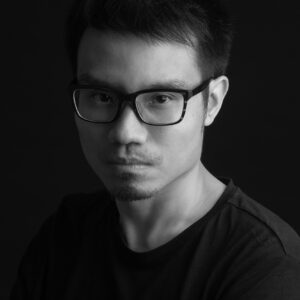
Calvin CHUA works at the intersection of design, planning and advocacy. He leads Spatial Anatomy, a design practice that develops spaces, objects and strategies for cities. Complementing built projects, he engages the wider design community through curating exhibition and writing on topics relating to urbanism, adaptive reuse and modernist heritage for various journals and book chapters. In parallel, he serves as an Adjunct Assistant Professor at SUTD, leading design studios focusing on resilient urban peripheries. Passionate about geopolitical issues, he is recognised as one of the global leading voices on the Korean peninsula. For the past decade, he has led ground-breaking non-profit capacity building programmes on urban development in the DPRK. His opinions has been featured on multiple news media, including CNN and New York Times. His professional and non-profit works have also been recognised by various institutions, including being longlisted for the Royal Academy Dorfman Award. Prior to founding his own practice, he worked with leading urban planning and architecture firms in Europe. He has also consulted for the Asian Development Bank on urban development in Central and South Asia. He is a registered architect in the United Kingdom. He graduated from the Architectural Association School of Architecture.

Author, architectural journalist, curator, editor, and educator
www.apurvabose.com
Apurva Bose Dutta is an Indian author, award-winning architectural journalist, curator, editor, and educator and works at the intersection of architectural design writing, thinking, discourse, curation, journalism, criticism, and communications. Widely travelled, Apurva’s passion for communication and her academic background (B.Arch., Chandigarh College of Architecture; Diploma in freelance journalism, UK) have translated into her unique 18-year career with the AEC industry, involving global collaborations with prominent multimedia publication houses, firms, organisations, and institutions affiliated with architecture, design, and building.
Having represented India at International Architectural Media Visits, Apurva also consults for academic and professional industry initiatives and offers training in architectural design writing, a discipline for which she is extensively recognised for her pioneering initiatives in India. Author of Architectural Inheritance and Evolution of India (2023) and Architectural Voices of India (2017), Apurva is widely published and holds advisory positions with several renowned architectural and design global platforms.

Kenneth FRAMPTON is Ware Professor Emeritus at Columbia GSAPP, where he has taught since 1972. He was trained as an architect at the Architectural Association School of Architecture, London and has worked as an architect and as an architectural historian and critic. In addition to Columbia, he has taught at a number of leading institutions including the Royal College of Art in London, the ETH in Zurich, the Berlage Institute in Amsterdam, EPFL in Lausanne and the Accademia di Architettura in Mendrisio.
He is the author of Modern Architecture and the Critical Present (1980), Studies in Tectonic Culture (1995), American Masterworks (1995), Le Corbusier (2001), Labour, Work & Architecture (2005), and most recently, L’Altro Movimento Moderno (2015) and A Genealogy of Modern Architecture: Comparative Critical Analysis of Built Form (2015). The greatly enlarged 5th edition of his Modern Architecture: A Critical History was published in September 2020, expanded in order to go beyond the Eurocentric/ Transatlantic emphasis of previous editions. Yale University Press will publish his study, The Other Modern Movement in 2021.
Frampton teaching was the subject of the 2017 exhibition Educating Architects: Four Courses by Kenneth Frampton at the Canadian Centre for Architecture, where his archive is held. Metropolis Magazine named him a Gamechanger in January 2018. Frampton will be recognized with the Golden Lion for Lifetime Achievement at the 2018 Venice Biennale for Architecture.
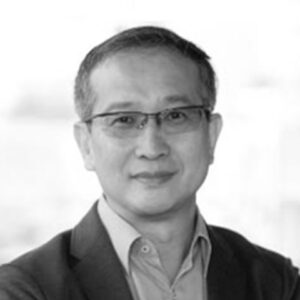
HENG Chye Kiang is the Provost’s Chair Professor and immediate past dean of the School of Design and Environment at the National University of Singapore. He teaches architecture, urban design and planning and has lectured at major universities in Europe and Asia. He has been appointed visiting professor to several universities in China, Korea and Japan and is currently Honorary Professor at CUHK. His research covers sustainable urban design, planning, and the history of Chinese cities. He publishes widely; his books include Singapore Chronicles: Urban Planning (2018), 50 Years of Urban Planning in Singapore (2016), Re-Framing Urban Space (2015), On Asian Streets and Public Space (2010), A Digital Reconstruction of Tang Chang’an (2006), and Cities of Aristocrats and Bureaucrats (1999). Prof Heng consults internationally on urban design and planning and is the conceptual designer of several international urban design competition-winning entries and awards. Most recently his masterplan for Hulhumale’ (Maldives) won the Cityscape Global Award for Masterplan Project (2018). He also serves as editorial board member of several international journals and as jury member of many international design competitions in Asia. He was on the boards of Singapore’s HDB, URA, BCA, JTC and NMS and is currently senior fellow at the URA Academy and Centre for Liveable Cities. He is also a Board member of the Singapore Institute of Technology and Nanyang Academy of Fine Arts and member of the MND’s Scientific Panel.

Hilde HEYNEN is a professor of architectural theory at the University of Leuven, Belgium. Her research focuses on issues of modernity, modernism and gender in architecture. In Architecture and Modernity. A Critique (MIT Press, 1999) she investigated the relationship between architecture, modernity and dwelling, arguing that critical theories such as those of Walter Benjamin and Theodor Adorno offer crucial insights when revisiting the Modern Movement. More recently she engaged with the intersection between architecture and gender studies, resulting in the volume Negotiating Domesticity. Spatial productions of gender in modern architecture (co-edited with Gulsum Baydar, Routledge, 2005). She was also the co-editor of Back from Utopia. The Challenge of the Modern Movement (with Hubert-Jan Henket, 010, 2001) and of the Handbook Architectural Theory (with Greig Crysler and Stephen Cairns; Sage, 2012), alongside other volumes. Her intellectual biography of Sibyl Moholy-Nagy is published with Bloomsbury (Sibyl Moholy-Nagy. Architecture, Modernism and its Discontent, 2019) and with Sandstein (Sibyl Moholy-Nagy. Kritikerin der Moderne, 2019).
She studied architecture and philosophy at the University of Leuven, where she also received her PhD. She was a J Paul Getty postdoctoral fellow, a research fellow at the Radcliffe Institute (Harvard University), and held visiting positions at MIT (Cambridge, Mass.), at the AA-school (London), RMIT (Melbourne) and Harvard. Her work was supported by grants from the Research Foundation Flanders, the Research Council of the University of Leuven, the Netherlands Architecture Fund, the Graham Foundation and the Radcliffe Institute of Advanced Studies.
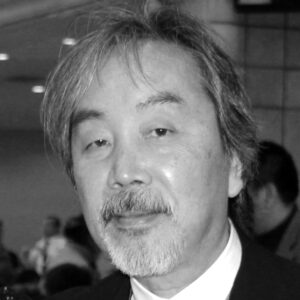
Kazuo IWAMURA is Professor Emeritus of Tokyo City University, CEO of IWAMURA Atelier Inc., Yokohama and Visiting Professor of Chu Hai College, Hong Kong.
After the professional career in Europe and the Middle East, he founded his own office in Tokyo (1980), being specialized in the holistic sustainability of architectural and urban design. He has been also teaching at numerous universities, and contributing to other professional institutions world-wide including UIA, ARCASIA, WGBC, JIA, AIJ etc.
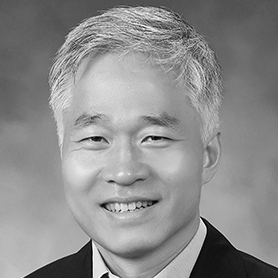
Juwon KIM was born in Seoul, Korea, graduated from the Department of Architecture at Hongik University in Korea in ’91, and graduated from the AA School Diploma in the UK in ’00. After practising in architecture in London, England from 2000 to 2007, he has been working as a design professor in the Department of Architecture at Hongik University since 2008. He is a representative of Research Architecture Workshop. He is interested in research and proposals on urban housing types and urban regeneration of old city centers of Korean cities. His interest is also in improving Korean architect related system.
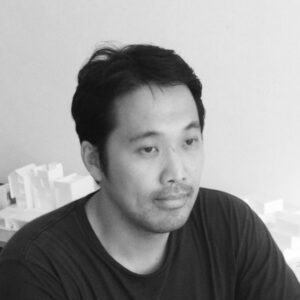
Min Seok KIM is a licenced architect in Korea(KIRA) and United Kingdom(ARB), a chartered member of RIBA. He studied architecture at the Architectural Association school of Architecture (UK) and worked at several architectural studios, including Adjaye Associates and Kohn Pedersen Fox Associates, before establishing Notion Architecture in Seoul. The practice has developed a reputation for working on a wide range of cultural, commercial and residential projects. Current projects include remodeling a lobby hall for the Leeum Samsung Museum in Seoul and a hotel with hot spring spa in Suanbo. He has taught at several architecture schools including the Seoul National University and Dan Kook University. He won a Korean Young Architects awards in 2014 and participated several exhibitions. He has been appointed as a public architect in Seoul Metropolitan City and a region of Gyeong-sang-nam-do, also a committee member of international relations in Korean Architects Institute.
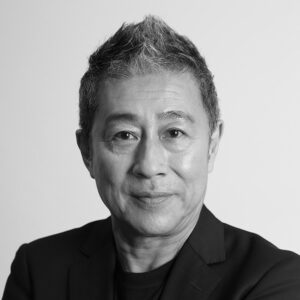
A noted Japanese-American architect / educator, George KUNIHIRO is a Principal at T-Life Kankyo Lab, a multi-disciplinary design based in Japan.
A dedicated educator, he is the Professor of Architecture at Kokushikan University (Tokyo), a Visiting Professor at Tsinghua University (Beijing), Meiji University (Tokyo) and Kyoto Arts and Crafts University.
He graduated from University of California / Berkeley with A.B. / Environmental Design, received M.Arch from Harvard University Graduate School of Design and completed the Ph.D program at the University of Tokyo. Among many leadership positions he has held, he served as a Vice President of the Japan Institute of Architects (JIA), President of the Architectural Regional Council Asia (ARCASIA) and was on National Board of the American Institute of Architects (AIA). He has also been a member on various international juries and lectured globally. He received numerous international recognitions including the Presidential Medal from the AIA (USA) and FCAM (Mexico) in recognition of significant contributions to the field of architecture. He is a Fellow of the A.I.A and the J.I.A.

LEE Chor Wah is a registered architect and interior designer with the Board of Architects Malaysia. He studied architecture at UNSW, Sydney and was a registered architect with the Board of Architects in New South Wales before returning to Malaysia in the early 1990’s.
He is currently a principal lecturer at TAR University College and the principal of Lee Chor Wah Architect. He was the editor in chief of Architecture Asia as well as Architecture Malaysia.
He has written many articles on architecture and a number of books such as Recent Malaysian Architecture Volume 2, Official Logbook KLAF 2019, and Rethink-a new paradigm for Malaysian Timber. He is an avid urban sketcher.
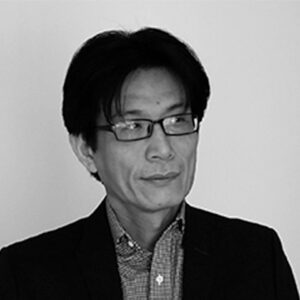
Shiqiao LI is Weedon Professor in Asian Architecture, University of Virginia, where he teaches history, theory, and design of architecture, and directs PhD in the Constructed Environment Program. He studied architecture at Tsinghua University in Beijing and obtained his PhD from AA School of Architecture and Birkbeck College, University of London. Prior to joining University of Virginia, Li practiced architecture in London and Hong Kong, and taught at AA School of Architecture, National University of Singapore and The Chinese University of Hong Kong. Some of his design research and teaching is featured in Typological Drift, Emerging Cities in China (San Francisco: AR+D, forthcoming, co-authored with Esther Lorenz) and Kowloon Cultural District (Hong Kong: MCCM, 2014, co-edited with Esther Lorenz). His research contributes towards understandings of architecture as it is situated in indigenous cultural contexts. His books include Understanding the Chinese City (London: Sage, 2014), Architecture and Modernization (Beijing: WaterPower Press, 2009) and Power and Virtue, Architecture and Intellectual Change in England 1650-1730 (London and New York: Routledge, 2006). He served as Chair of Department of Architectural History, International Judge for RIBA Presidents’ Medal for dissertations, and is a member of the 2020-2021 Visiting Committee of Harvard Graduate School of Design.

Peter G. ROWE is Raymond Garbe Professor of Architecture and Urban Design at the Graduate School of Design and a Harvard University Distinguished Service Professor. He served as Dean of the Faculty of Design from 1992 to 2004; was Chairman of the Urban Planning and Design Department from 1988 to 1992; and Director of the Urban Design Programs from 1985 to1990. Prior to joining the Harvard faculty in 1985 he was Director of the School of Architecture at Rice University from 1981 to 1985 and also directed many multi-disciplinary research projects through the Rice Center, where he was Vice President from 1978 onwards, and at the Southwest Center for Urban Research. His research and consulting are extensive and international in scope, including subjects dealing with matters of cultural interpretation and design, as well as the relationships of urban form to issues of economic development, historic conservation, housing provision, and resource sustainability. Professionally, he is also the co-founder and chairman of SURBA: the Studio for Urban Analysis, in Brooklyn, New York. His research over the past twenty years has focused primarily on China and East Asia. He is the author, co-author, and editor of numerous books, articles and research reports on this region, including: L’Asia e il Moderno (1999); Modern Urban Housing in China: 1840-2000 (2001); Architectural Encounters with Essence and Form in Modern China (2002); Shanghai: Architecture and Urbanism for Modern China (2004); East-Asia Modern: Shaping the Contemporary City (2005); A City and Its Stream: The Cheonggyecheon Restoration Project (2010); Emergent Architectural Territories in East Asian Cities (2011), Urban Intensities: Contemporary Housing Types and Territoties (2014); China’s Urban Communities: Concepts, Contexts, and Well-Being (2016) and A City in Blue and Green: The Singapore Story (2019) .

Nabah Ali SAAD is an Assistant Professor teaching Architecture Studio at COMSATS University Islamabad, Lahore Campus since 2014. She completed her Bachelor’s degree with Honours from the National College of Arts, Lahore in 2008 and following 3 years if of practice received a Master’s Degree in Architecture from the Dessau Institute of Architecture in Germany in 2014.
She is a contributor to Art Now Pakistan and is presently serving as Honorary Secretary for both the Institute of Architects Pakistan – Lahore Chapter and the Board of Architectural Education – Institute of Architects Pakistan.
Her core areas of study and research lie in Urbanism and the various paradigms and dichotomies which create the urban fabric of cities.

Khadija Jamal SHABAN is a consulting Architect and Project Manager and has consulted for the Aga Khan Development Network on their construction projects in the Middle East, Central Asia and South Asia. Her prior experiences range from institutional projects to housing for the low income for private clients to Donor agencies such as the World Bank, Swiss Development Cooperation, Homeless International and USAID.
She did her B.Arch from NED, Karachi and her Masters in Architectural Studies from Massachusetts Institute of Technology, USA.
She has also served on the Board of many organisations which include Aga Khan Planning and Building Services and Aga Khan Rural Support Programme. She has been the Chairperson for FOCUS Humanitarian Assistance for 5 years. She has served on the Board of Accreditation of Architecture schools for the Pakistan Council of Architects and Town Planners. Presently, she is the Chairperson for Board of Architecture Education of the Institute of Architects Pakistan. She serves on the Board of Intbau – Pakistan Chapter. She has served as the Regional Coordinator for Aga Khan Award for Architecture and has been a technical reviewer for 3 cycles. She has presented papers in national and international conferences and has served as editor for two journals in Pakistan.

Tan Beng Kiang is an educator and a registered architect in Singapore with rich experience in both the public and private sectors. She was the former Deputy Head of the National University of Singapore Architecture Department and former council member of the Singapore Institute of Architects. She is a member of various technical and advisory committees and her publications are in journals, books and conference proceedings.
She is a recipient of numerous design and teaching awards including the Pacific Rim Award for Excellence in Public Interest Design. Her teaching and research interests are in Participatory Community Design & Planning, Service Learning, Community Development, Social and Environmental Sustainable Housing and Learning Environments. She holds a Doctoral degree from Harvard University, Master of Architecture from UCLA and Bachelor of Architecture (Honours) from National University of Singapore.
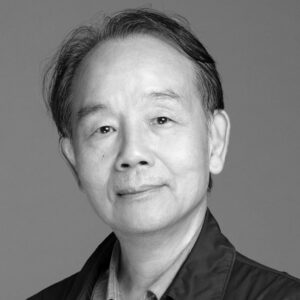
WANG Jianguo is a full professor at the School of Architecture and the director of urban design research center in Southeast University, China. He served as the school dean for 13 years from 2001 to 2014. He was awarded as Academician of Chinese Academy of Engineering in 2015. He is holding several important academic posts in China, i.e., director of the Ministry of Education’s Steering Committee on the Teaching of Architecture, the Vice President of Architectural Society of China, the Vice President of Urban Planning Society of China, the Director of the Urban Design Expert Committee of Ministry of Housing and Urban-Rural Development. He is serving on the Editor Board of international journals, such as Frontiers of Architectural Research (FoAR, Editor in Chief), Engineering etc. He is a member of WSE (World Society for Ekistics).
His research is focused on architecture, urban design and architectural heritage protection etc., oriented in both frontier and engineering practice. With over 200 papers in high-ranking journals and more than 120 presided practical projects of urban and architectural design, he has won many national, provincial and ministerial awards for outstanding achievements in both science and technology. He has published 8 books, e.g., “Design Theory and Method of Modern Urban”, “Urban Design”, “Protection and renewal of the industrial heritage buildings in post-industrial era”, etc. He was awarded at both home and abroad over 10 times for his excellence in planning and design projects. He successfully builds international collaborations with some renowned international universities and has been invited to give lectures many times, such as Massachusetts Institute of Technology, Harvard University, University College London, Delft University of Technology, University of Colorado, School of Architecture at Paris-La Villette etc.
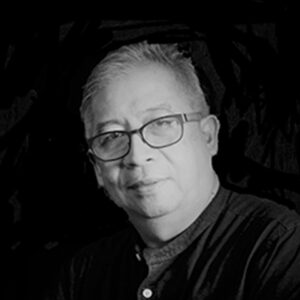
Johannes WIDODO is an Associate Professor, the director of MA.ArC (Master of Arts in Architectural Conservation) program, and Tun Tan Cheng Lock Centre for Asian Architectural and Urban Heritage in Melaka (Malaysia) of the Department of Architecture, National University of Singapore. He is an Associate Member of the Singapore Institute of Architects (SIA), the founder of mAAN (modern Asian Architecture Network), Executive Committee member of the Asian Academy for Heritage Management (since 2019), jury member for UNESCO Asia Pacific Awards for Cultural Heritage Conservation, member of ICOMOS International Scientific Committee, a founding member and director of ICOMOS National Committee of Singapore and Indonesia, a founding member and director of DoCoMoMo Macau and DoCoMoMo Singapore, the founder and executive director of iNTA (International Network of Tropical Architecture). He served as an advisory board member of the Preservation of Sites and Monuments of the National Heritage Board of Singapore (2013-2019). He is a board member of SEACHA (South-East Asian Cultural Heritage Alliance) platform (since 2019). He received his first professional degree in Architecture (Ir.) from Parahyangan Catholic University (Bandung, Indonesia, 1984), Master of Architectural Engineering (MArchEng.) from Katholieke Universiteit Leuven (Leuvn, Belgium, 1988), and PhD in Architecture from the University of Tokyo (Tokyo, Japan, 1996).
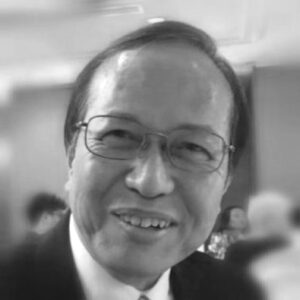
WONG Ying Fai is B.A.(Arch Studies)(Hons), B.Arch (Distinction), M.B.A., F.H.K.I.A., R.I.B.A., and Registered Architect (Hong Kong-Macau-PRC).
He has his wide and cross-disciplinary vocation as an architect, a project manager, a scholar, and a business consultant in the Asia Pacific. He has decades of experience in the design and project management of mega-scale developments such as university campus, technology parks, and integrated resorts. He was appointed an Honorary Associate Professor in Architecture at the Hong Kong University in the interim.
As an architect registered in Hong Kong and Macau, he is the Principal of his consulting practice in architecture and property developments, with his qualification to register also in the People’s Republic of China as Class 1 Architect. He is, as well, a Researcher at the Manchester Institute of Innovation Research, University of Manchester, in focusing on international business, entrepreneurship, and sustainability of developments in Greater Bay Area and Belt-and-Road Initiatives.
He maintains his long-standing voluntary service to the public and the architectural community, in serving the Hong Kong Institute of Architects as Council Member and Board/Committee Chairmen, and in attending to the well-being of his affiliated professional bodies of UIA, CAA and ARCASIA.
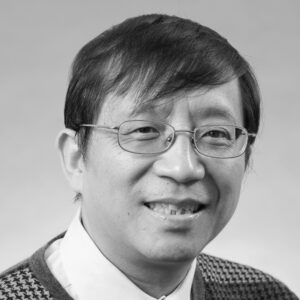
Charlie Q. L. XUE has taught architecture at Shanghai Jiaotong University; the University of Texas, USA; and City University of Hong Kong. An award-winning architect and writer, he has published 14 books and decades of book chapters, including ‘Building a Revolution: Chinese Architecture since 1980′ (HKU Press, 2006), ‘Hong Kong Architecture 1945-2015: From Colonial to Global‘ (Springer, 2016), ‘A History of Design Institutes in China: from Mao to Market‘ (Routledge, 2018, with G. Ding), and ‘Grand Theater Urbanism: Chinese cities in the 21st century‘ (Springer, 2019, ed.). He has published more than 100 research papers in professional and international refereed journals. His book “Hong Kong Architecture 1945-2015: From Colonial to Global” was awarded by the International Committee of Architectural Critics (CICA) chaired by Sir Joseph Rykwert in 2017. His research focuses on modern architecture in China and design strategies for high-density environments.
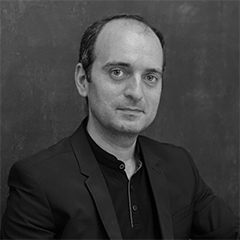
Nuno Soares is an architect and urban planner based in Macau since 2003, spreading his practice through architectural design, teaching, and research.
As principal of his own office URBAN PRACTICE, he develops projects ranging from the urban scale, to architecture and design, both in Macau and abroad. His work has been exhibited at the UABB Bi-city Biennale of Urbanism/Architecture (Shenzhen), Seoul Biennale of Architecture and Urbanism, and Venice Biennale of Architecture.
Nuno is the Head of the Department of Architecture and Design at the University of Saint Joseph, in Macau, and a frequent speaker, lecturer and juror internationally. He founded and directs the Macau-based CURB – Center for Architecture and Urbanism, a non-profit that promotes research, education, production and dissemination of knowledge in architecture and urbanism, taking local issues to a global audience.
Nuno is a member of the Education Commission of the International Union of Architects (UIA) and the UNESCO-UIA Validation Council for Architectural Education, Past Vice-President of ARCASIA Zone C and the Coordinator of the Cities and Territories Working Group of the Council of Portuguese Speaking Architects (CIALP). He’s a Director of the Architects Association of Macau (AAM) and a Member of the Council of Architecture, Engineering and Urbanism of Macau SAR (CAEU).
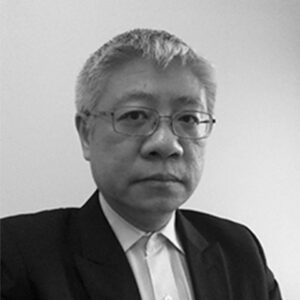
Jianfei ZHU obtained BEng from Tianjin University and PhD at University College London, both in architecture, in 1985 and 1994 respectively. He has since lectured at the Bartlett and the AA of London, then Tasmania University and University of Melbourne in Australia, before joining Newcastle University of the UK as Chair of East Asian Architecture. Jianfei has published more than 100 papers and delivered more than 100 public lectures worldwide, on architecture, politics and culture in relation to (though not limited to) modern and late imperial China. He is the first to deliver a micro spatial-political analysis of the imperial palace of Beijing (‘A Celestial Battlefield’, AA files 28, 1994); he is also the first to write on contemporary Chinese architecture in the west (‘Beyond Revolution’, AA files 35, 1998). He is the author of ‘Criticality in between China and the West’ and ‘Robin Evans in 1978’ (Journal of Architecture 10/5 of 2005 and 12/2 of 2011), and ‘Empire of Signs of Empire’ (Harvard Design Magazine 38, 2014). He has published several books including Chinese Spatial Strategies, Architecture of Modern China (Routledge, 2004 and 2009), and Xingshi yu Zhengzhi: Forms and Politics (Tongji University Press, 2018).
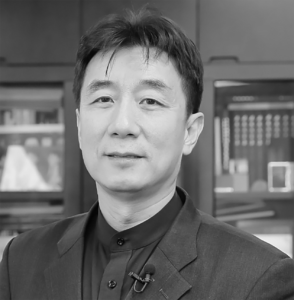
B.E. 1985/ D.E. 1992, School of Architecture, Tsinghua University, Academician of CAE, National Design Master, Registered Architect and APEC Architect. Winner of The Liang Sicheng Architecture Prize(UIA2018)
ZHUANG Weimin, architect and educator, was the Dean of the School of Architecture Tsinghua University and Professor of Design(2013-2020). His work focuses on Architecture design and method theory and programming. He serves on VP of the ASC, Council Member of UIA and Co-director of Professional Practice Committee of UIA. He was the chief architect of the Shooting Range Hall, Gym of Judo & Taekwondo for 2008 Olympic Games, National Exhibition and Convention Center (co-design) etc. He once won The Honorable Mention of ARCASIA Awards and FIDIC Project Award etc. His work of publications includes Architectural Programming and Design, The Design Principles and Practice of Architecture Ecology-Oriented Integrated Skin, etc., as well as more than a hundred published academic papers. He was also invited to participate many professional exhibitions such as 27th UIA Congress Exhibition “Fusing & Harmony” Contemporary Chinese Architecture, Seoul 2017, “From Beijing to London: Contemporary Chinese Architecture” (RIBA+UED) Exhibition, London, UK 2012, etc.
CORRESPONDING EDITORS
Coming Soon...

 The Council of the ARCASIA consists of all the Presidents of the National Institutes.
The Council of the ARCASIA consists of all the Presidents of the National Institutes.























 loading......
loading......